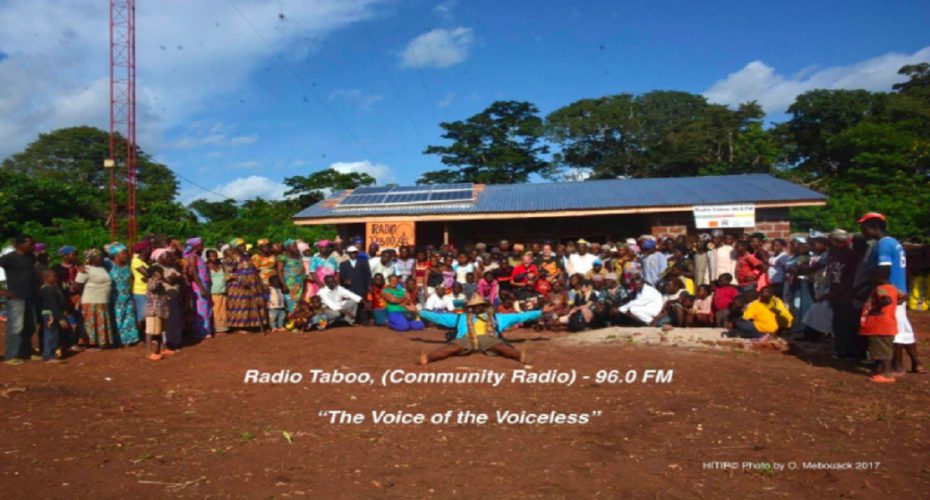One hundred years after the invention of Radio, this technology remains an essential tool in the education of peoples, especially the poor. This is demonstrated by Radio Taboo, a new radio station powered by solar energy in the village of Nditam on the Tikar Plain, Ngambé Tikar Subdivision, Mbam and Kim Division of the Centre region of Cameroon. The methods applied by those in charge of this radio station are simple. The broadcast of programs is done by and for the rural communities and promotes the emancipation and interaction between the people of its 40 km listening area.
Mr. Issa Nyaphaga, the promoter of Radio Taboo says that; “Taboo community radio pursues a goal of educating and empowering people. This is why Radio Taboo broadcasts in ten languages: French, English, Tikar, Balom, Djanti, Bavek, Bamoun, Hausa, Fulani and Mvouté are the languages used at the station”.
The HITIP Cameroon association (Hope International for Tikar People) before the creation of this radio station had already accomplished several other projects to ease the provision of drinking water, public health, solar energy and an inter-village football championship etc …
The promoter says; “It has been a long six-year road full of challenges of all kinds to finally inaugurate the very first radio of this locality on February 8, 2017.” All the populations, the traditional chiefs, the councilors and the officials accompanied by the Sub divisional Officer, took part in this celebration. Radio Taboo is conceived on a pilot project model. “We decided to create this radio station because we face problems of isolation, epidemics and farmers lack opportunities to market their products to ensure better living conditions”, says Nyaphaga who adds that; “We had to develop solar energy to power the station that broadcasts only six hours a day for now. On the radio, we are the very first generation of announcers, producers and solar technicians. It enables village schools to study better and this concept is to be exported elsewhere. ”
When we ask Issa, what is the difference between radio today and 20 years ago? Issa answers: “The factor is important, because for the manufacturer the tool is now available. Secondly, no need to distribute radios sets to listeners; 4 out of 7 African villagers have access to a radio device, or a mobile phone equipped with an FM chip. We are benefiting from the expansion of Asian electronic markets on the African continent. ”
Finally, the promoter reveals something wondrous: “The Bedzan pygmies who have their camp seven kilometers from the station listened to the radio for the first time in July 2017. This means that as a Civilization, we are backward on the service to be rendered to our species”.
However, Radio Taboo is committed to making up for this delay on the Tikar Plain. The station recruits and trains members of this community who then gain experience in communication, serving the same environment for endogenous, inclusive and sustainable development.
For more information, visit http://www.hitip.org

